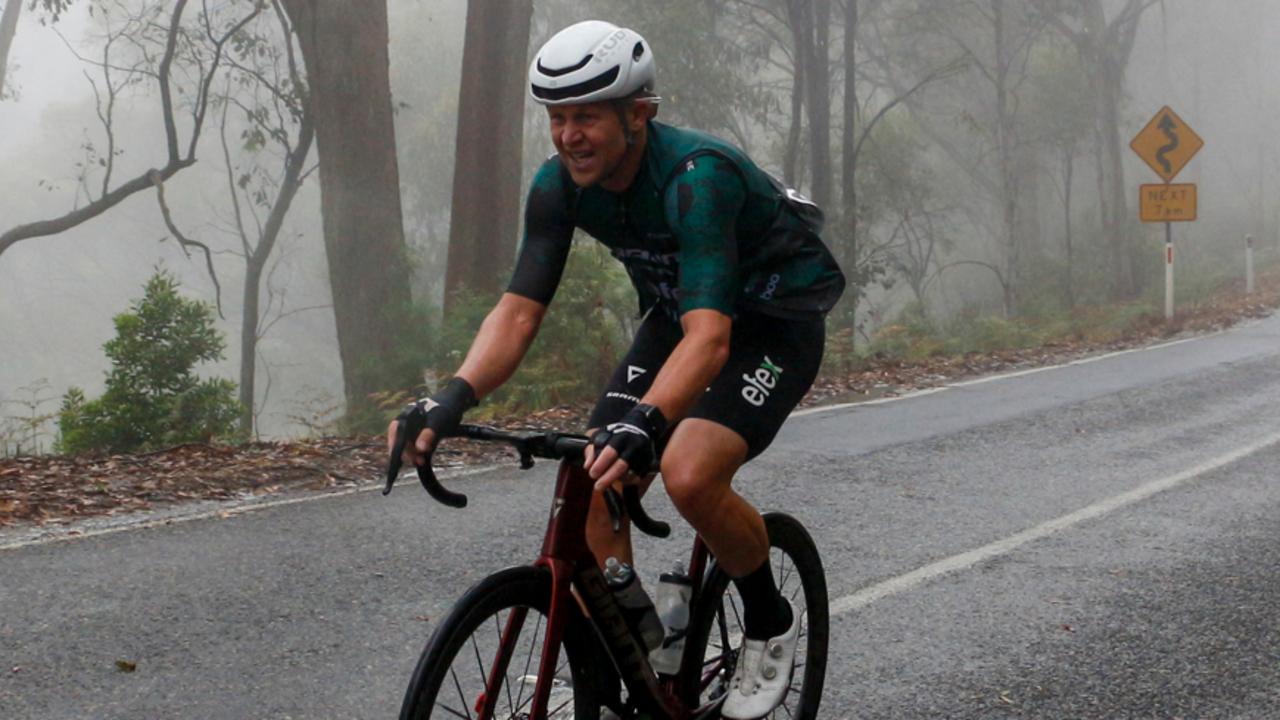Football Federation Victoria boss Peter Filopoulos puts growth and club prosperity at top of agenda
FEW understand the complexities of the debate between old soccer and new football quite like Peter Filopoulos.
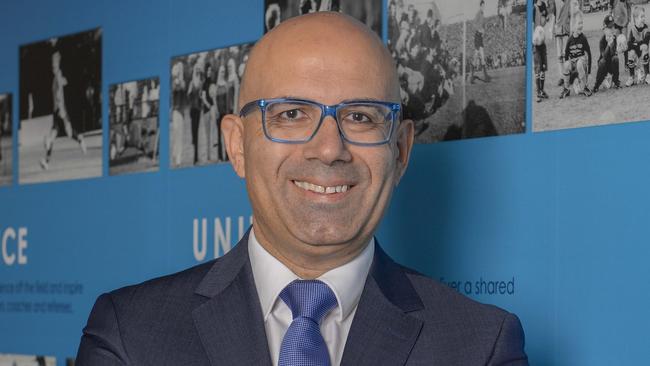
Local Sport
Don't miss out on the headlines from Local Sport . Followed categories will be added to My News.
FEW understand the complexities of the debate between old soccer and new football quite like Peter Filopoulos.
The new Football Federation Victoria boss first experienced Australian soccer when he attended the then Philips Soccer League and served as chief executive of A-League aspirant South Melbourne between 1992-1999.
Filopoulos has also worked with Swimming Australia, AFL clubs North Melbourne and Hawthorn and most recently A-League club Perth Glory.
He remains as passionate about the sport as when he was first introduced to it, embracing its evolution from the National Soccer League to the A-League.
“My passion for football is undeniable because it is also part of my heritage,” Filopoulos said. “I grew up in the sport. I still recall going to my first Philips Soccer League game with my uncle and before that I’d been to Victorian state league games.”
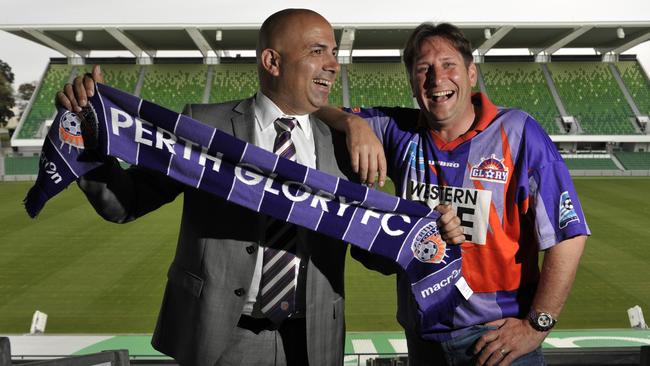
Offered the opportunity to return to Victoria and reconnect with those roots, Filopoulos said he was “as excited about the grassroots as much as I am the professional game”.
He offers a unique perspective on issues such as a national second division, A-League expansion and soccer’s rapid growth, having experienced them at a local and national level.
“You have to say we have made significant inroads and improvements in the game,” he said.
“One thing we did forget along the way when we created the A-League, we didn’t bring along the journey, old soccer to new football.
“We left behind some of the good processes some of these clubs had with developing talent.”
Filopoulos cited the examples of Victorian National Premier League clubs Melbourne Knights and South Melbourne and NSW outfit Sydney United as clubs that had players graduate through their ranks to represent Australia.
“History is important. You need to embrace it,” he said.
“For whatever the reason was, we decided to swipe history and put a line through history and start on a new horizon.
“It’s not a joke when people in this country say football didn’t start in 2006. It started a long time before that and it has been part of the evolution that has led to the A-League today.”
South Melbourne is one of four Victorian franchises vying for an A-League licence during the current expansion process, with Team 11 (south-east Melbourne), West Melbourne and Belgravia Leisure also in the mix.
“I think there is an appetite for a third team,” Filopoulos said.
“But it depends on the value proposition they bring to the table and what demographic they are drawing from.”
FFV has predicted it could need 432 new soccer pitches across the state by 2026 to cater for the sport’s skyrocketing growth.
In March, FFV reported more than 280,000 people played soccer in Victoria last year and there were 1090 pitches across the state.
Boosting facilities and infrastructure, club prosperity and a high-performance culture are among the key priorities for the organisation.
“It doesn’t have to be new land and new pitches,” Filopoulos said.
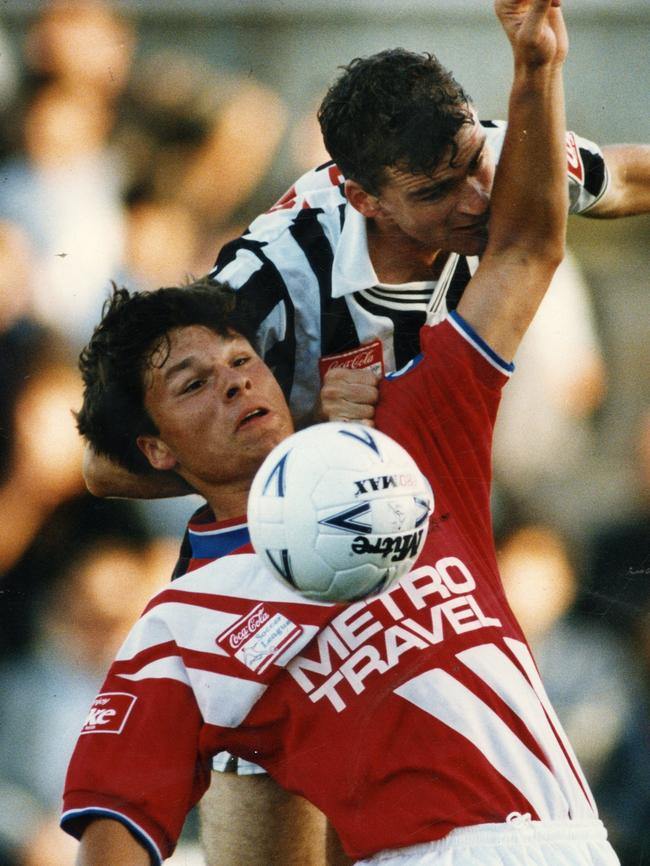
“It could be equivalent pitches in terms of increasing the capability of existing facilities by synthetics, lights and gender-equality changerooms.”
Filopoulos suggested “pitches on roofs of apartment blocks and buildings” could help cater for extra participants in landlocked areas.
Recently re-signed Melbourne Victory striker Ken Athiu is one of a select group of players who have earned an A-League opportunity through impressive NPL performances.
The 25-year-old netted 38 goals in 51 matches for reigning NPL champion Heidelberg before Victory came calling.
Clubs in the national competition have been criticised for recycling players, with 33 featuring for four or more clubs during the A-League’s 13 seasons.
Filopoulos said a national second division would offer more opportunities for players and coaches, but warned against its introduction unless it was underpinned by a “commercial model that works”.
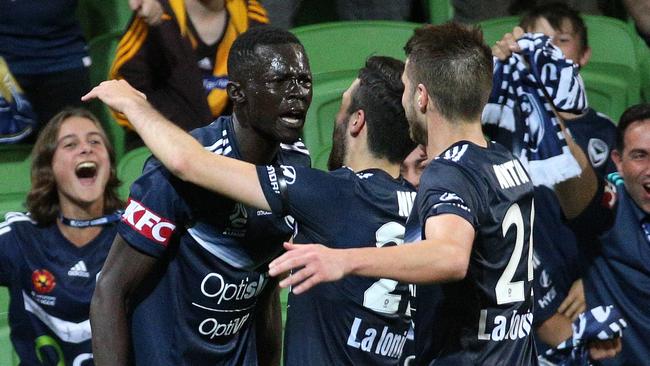
“I have an appreciation of what the gap is at the moment,” Filopoulos said.
“And I have an appreciation of what some of these clubs have as an aspiration which we need to realise.
“I think we need to match aspiration with capability. Are we ready for promotion and relegation right at this minute? I wouldn’t have thought so. Will we be ready for promotion and relegation sometime in the future? I would hope so.”


